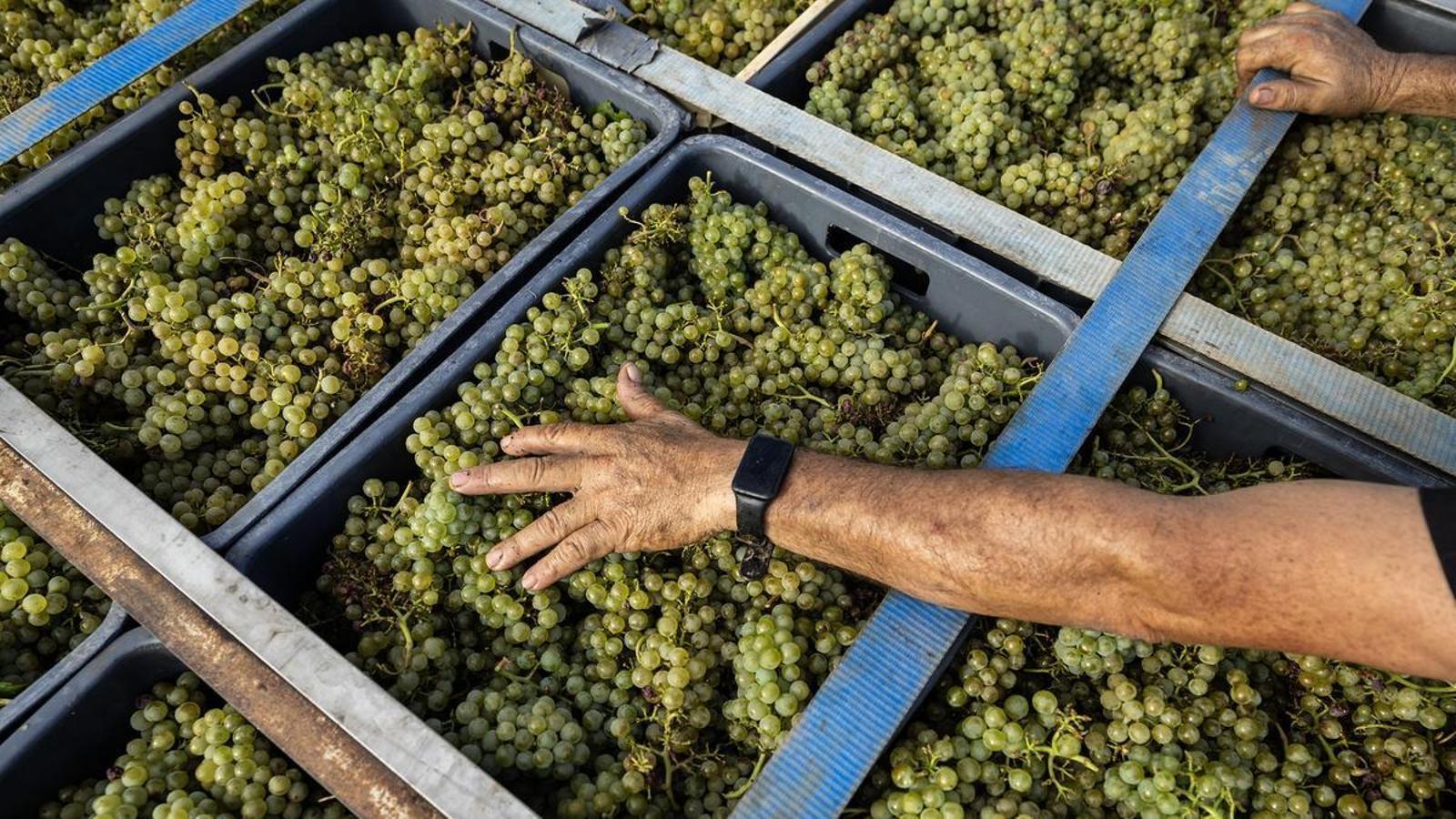The wine sector expects a "much better" harvest than in the last three years.
Grape production is estimated to be around 35% higher than last year.


BarcelonaThe Catalan wine sector has already begun the grape harvest campaign in some areas of the country with clearly more positive prospects than in the last three seasons. Spring rains and the fact that summer temperatures are, on average, lower than in recent years have facilitated the regeneration of the vineyards: "It will be much better than last year and two and three years ago," says Josep Marrugat, head of vineyards and wine at the agricultural union Unió de Pagesos.
"It will be a more normal harvest in terms of volume and ripening," adds Marrugat in statements to ARA, who is confident that production will be "30% or 35%" higher than last year. "From an average of 5,000 kilos per hectare, we will go to 7,000 or 8,000," but without reaching the 12,000 kilos of other vintages, indicates the union leader. Unió de Pagesos' estimates coincide with those of the winery Codorníu, which also expects a 35% increase in the amount of grapes harvested.
The big difference compared to previous years has been the weather. The three years of drought, especially the extreme levels in 2023, left the Catalan countryside severely affected in many areas, and the vineyards were no exception. In addition to the lack of water, the extreme temperatures—with several episodes of extreme heat waves from May to September—of recent years also damaged many crops.
"Last year, some vines were severely damaged," to the point that many farms "collapsed" due to the heat and drought, notes Marrugat. However, this year, with much more favorable rainfall and generally more moderate heat, the vineyards have "rebuilt themselves," he adds.
According to Marrugat, the "rains of the last few days" have not been entirely good for the grapes, as they have caused "some damage due to erosion and stone" on farms in various parts of Catalonia, but in general they have not caused any problems. However, the weather continues to mark the campaigns: "Although this July has been cooler than usual, climate change is a reality," said Joan Esteve, director of Raimat, a winery in Segrià (and a subsidiary of the Raventós Codorníu group) that began the harvest on August 5, in a press release.
In this sense, the fact that once again some wineries have already begun harvesting right at the beginning of August (in other years there had been farms that began harvesting at the end of July) indicates how much the calendar has moved forward in a short time. Traditionally, the prime month for grape harvest was September, whereas now in many regions of the country the campaign invariably begins in August.
This earlier harvest is due to climate change: high temperatures and changes in rainfall patterns cause grape ripening to occur earlier, requiring earlier harvesting. Furthermore, in recent years, many appellations of origin (DO) have been moving toward planting earlier grape varieties, and farmers therefore have to start harvesting earlier than when the vineyards had later varieties.
Waiting for prices
Regarding grape prices, Marrugat assures that producers are "waiting and waiting" for the announcements from the major wineries. Among the leading producers in terms of number of bottles, for now, Freixenet The winery, owned by the American fund Carlyle, has not yet announced the price at which it will purchase the grapes, but Codorníu, a direct competitor, has.
The winery, owned by the American fund Carlyle, announced in a statement that it will pay an average price of 72 cents per kilo, maintaining a climate premium of "45% compared to the base price agreed in the multi-year contracts." Marrugat assures that producers were "positively surprised" by Codorníu's price announcement, because it allows them to sell at a price sufficient to cover costs and allow farmers to earn a living.
On the other hand, the leader of Unió de Pagesos believes that lower prices do not allow farmers to earn a living. According to Marrugat, wineries like García Carrión have announced that they will pay around 50 euro cents per kilo of grapes on average, a price at which farmers lose money.
